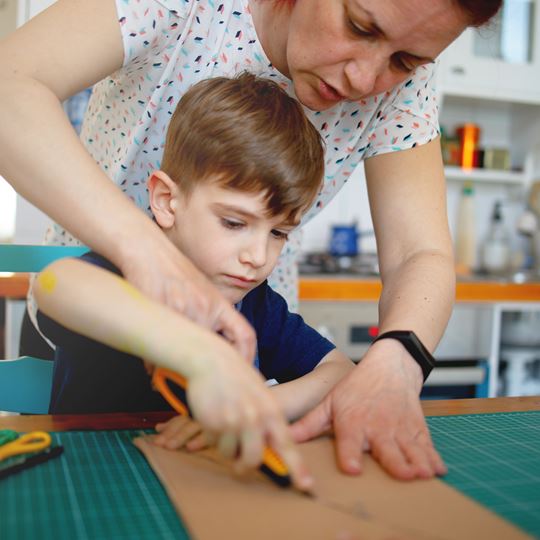What is respite foster care?
Foster parents sometimes need some time away from their role to rest and unwind – we call this respite. This is valuable for everyone, but particularly for people who look after children with disabilities, behavioural challenges or special educational needs.
Respite fostering provides a well-earned break to foster parents (and occasionally birth parents), particularly to those who are caring for children or young people with higher-level needs or disabilities. It's arranged in line with the needs of the child and their care plan and can be a one-off or a regularly planned placement.
Generally, respite fostering is for a night or two at a time - but can be for longer - and often takes place at the weekend or during school holidays. It’s all planned in advance, which means our team of respite foster parents have plenty of time to make arrangements, so it’s an ideal way to foster if you’re unable to commit full-time.
We aim for continuity wherever we can, and so we look to make sure the same respite carers look after the same children so they get to know each other over time. Respite foster care is great for foster parents, but the change can also be good for the child’s learning experience. It’s a unique form of fostering, but it is also extremely rewarding.
As a respite foster parent, you’ll have access to the same levels of support and training as all of our foster parents.
Who can become a foster parent?
Almost anybody can apply to become a foster parent - the only initial requirements are that you're over 21 years old, you have the legal right to work in the UK and that you have a spare bedroom that's always available to a child in your care. Of course, you'll also need to be kind, caring and dedicated to making a difference to a child.
Other than that, we welcome applications from people from all backgrounds, religions and ethnic groups. You can be gay, straight, bisexual or transgender, single, married or cohabiting. We also support foster parents with disabilities and health conditions, who are able to meet the needs of children in care.
So if you've ever wondered whether you could foster - we can't encourage you enough to take the first step and speak to our friendly team.
How do you become a foster parent?
The first step is to have a chat with one of our friendly advisors - either complete our online form or give us a call on 0800 369 8512. We'll speak to you about the role, take a few details and answer any of your questions.
When you're ready to progress, there's a standard application and assessment process that you'll need to go through to become an approved foster parent, including home visits, background checks and references, training and attending a fostering panel. You can find out more about each step below.
What are the different types of fostering?
We offer many different types of fostering so we can continue to meet the ever-changing needs of children and young people in foster care. These include short-term or interim care (up to 2 years), long-term or permanent care (more than 2 years and until the child turns eighteen), emergency, respite and more.
We also provide foster care placements that are considered specialist, including parent and child fostering and caring for children with disabilities or those seeking asylum. Learn about the different types of fostering below.
Other types of fostering
Please make sure you read our terms and conditions because you're agreeing to them by submitting an enquiry. It's also worth reading our privacy policy and cookies policy so you understand how we collect and use your personal data. This site is protected by reCAPTCHA and the Google Privacy Policy and Terms of Service apply.
Please make sure you read our terms and conditions because you're agreeing to them by submitting an enquiry. It's also worth reading our privacy policy and cookies policy so you understand how we collect and use your personal data. This site is protected by reCAPTCHA and the Google Privacy Policy and Terms of Service apply.
Discover everything you need to know about fostering by downloading our brochure, including;
- Types of fostering
- Requirements to foster
- Application process
- Training and support
- Allowances and benefits
Fill out your details on the following form and you'll receive our Guide to Fostering.
Can't find what you're looking for?
By phone
One of our team is available to talk to you over the phone to answer any of your fostering queries.
Enquire online
You can get in touch by filling out our online enquiry form with any queries that you may have.
Your local team
Find contact details for your local office team. We’re always happy for you to pop-in and chat.










